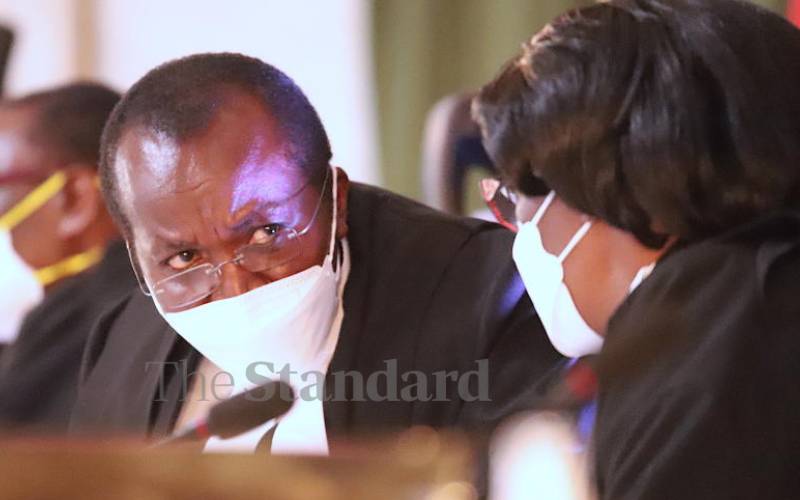×
The Standard e-Paper
Kenya’s Boldest Voice

Court of Appeal President Daniel Musinga (left) at the Appellate court on June 30, 2021. [Denish Ochieng, Standard]
Parliament has defended its decision to pass the Building Bridges Initiative Bill even as it pleaded with the Court of Appeal to allow the constitutional amendment process to continue.